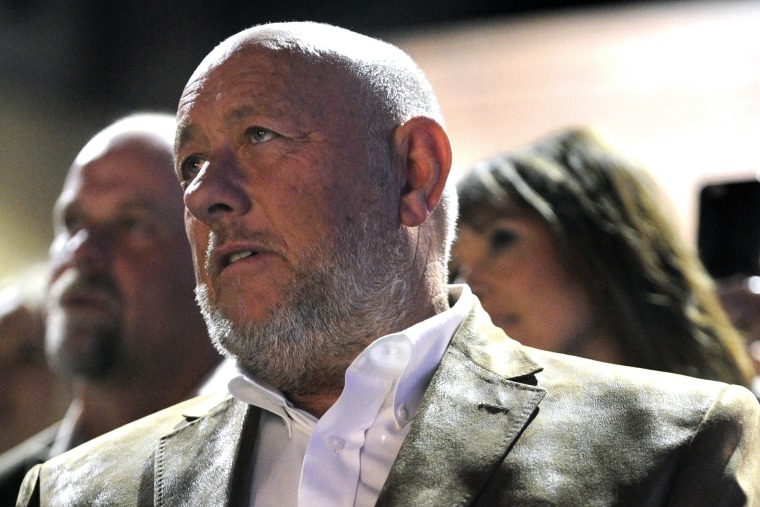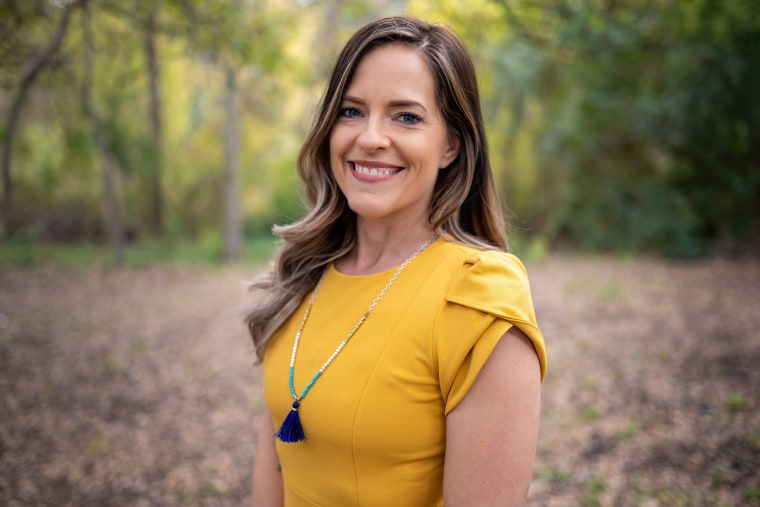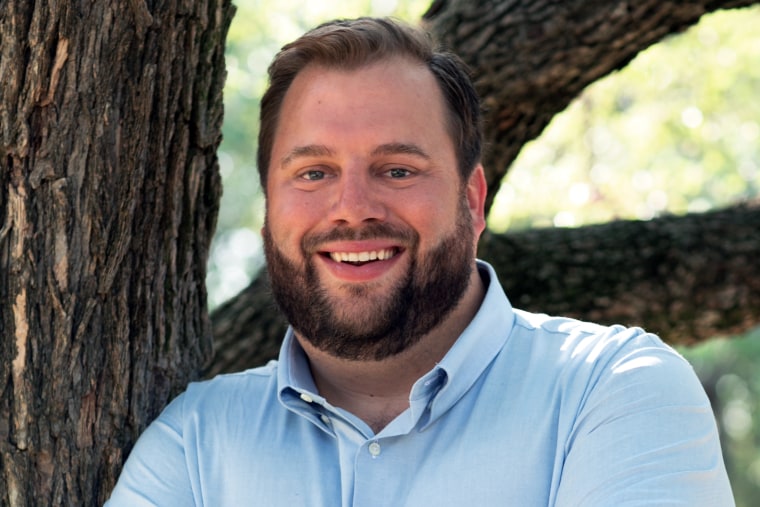Texas Republicans bankrolled by Christian conservative donors are hoping to ride a wave of parental anger over the teaching of race and sexuality in schools to achieve what has long been an unattainable goal: state funding for private education.
Groups committed to giving parents the option of sending their children to private schools using taxpayer dollars — sometimes known as “school choice” or “vouchers” — have given millions of dollars to Republican candidates in Texas this year, helping win key races and pushing some establishment lawmakers further to the right on the issue. Republican Gov. Greg Abbott recently pledged to make school choice a priority in the next legislative session if he wins re-election over Democratic challenger Beto O’Rourke.
As a result, political observers say, public school funding is effectively on the ballot Tuesday.
The push for private school vouchers has been funded in large part by Defend Texas Liberty, a Christian nationalist-aligned political action committee led by a former far-right Republican state lawmaker and bankrolled by a pair of West Texas billionaires. The PAC has spent nearly $10 million this year, largely backing candidates who support public funding for private education and attacking those who oppose it, according to an NBC News analysis of Texas Ethics Commission campaign finance reports and data compiled by the nonprofit OpenSecrets.
Defend Texas Liberty did not respond to messages requesting interviews with PAC leaders.
Brandon Rottinghaus, a political scientist at the University of Houston, said big spending by groups like Defend Texas Liberty and local fights over the way schools address racism, history and LGBTQ identities have “softened the ground” for school privatization — in Texas and nationally.
“These groups have been demonizing what is being taught in public schools, and that’s the fastest way to erode faith that public schools work,” Rottinghaus said. “Whether it’s true or not is irrelevant. If people believe that it’s true, then it’s politically potent.”
Defend Texas Liberty gave $3.6 million to former state lawmaker Don Huffines, an Abbott primary challenger who ran a campaign promising to crack down on medical care for transgender children, require the teaching of creationism in public schools and give parents government money to send their children to private schools. (Abbott publicly came out in support of private school vouchers two months after winning the primary with 66.5% of the vote.)

The PAC also spent $168,000 supporting Republican Nate Schatzline, a former pastor running for a seat in the Texas House of Representatives on a campaign to give parents more freedom to decide how and where their children are educated. Schatzline won a competitive GOP primary in a solidly conservative North Texas district in part by painting his Republican opponent as an advocate for teaching “leftist, woke ideologies” in schools.
“It’s time to outlaw the sexualization of our children!” Schatzline wrote on his campaign website. “It’s time to outlaw racist ideologies that seek to divide our children, not unify them. It’s time to teach our children to love America, not hate it!”
Defend Texas Liberty donations accounted for more than a third of Schatzline’s campaign funding. He initially agreed to speak with a reporter for NBC News, but later did not return phone calls or text messages.
And this fall, Defend Texas Liberty spent $100,000 to put up dozens of billboards along Texas highways, including some that showed a photo of O’Rourke next to a baseless allegation about “grooming” children, an anti-LGBTQ attack that’s become popular among conservatives this year.
In a statement, Tori Larned, a spokesperson for O’Rourke’s campaign, said, “Abbott is now calling to defund public education with his voucher program that takes tax dollars out of public school classrooms across the state and sends them away to private schools.”
Abbott has denied that vouchers would harm public education.
“We can fully fund public schools while also giving parents a choice about which school is right for their child,” he said during a May campaign event in San Antonio. “Empowering parents means giving them the choice to send their children to any public school, charter school or private school with state funding following the student.”
Defend Texas Liberty is led by former state Rep. Jonathan Stickland, a Republican who earned a reputation as the state’s most conservative lawmaker before leaving the legislature in 2021. Nearly 90% of the PAC’s funding this year has come from Tim Dunn and the family of Farris Wilks, a pair of billionaire oil and fracking magnates who have expressed the view that Texas state government should be guided by Biblical values and run exclusively by evangelical Christians. Combined, they’ve spent tens of millions of dollars over the past decade funding far-right Texas candidates and a network of nonprofits and advocacy groups that push conservative policy ideas. Stickland, Wilks and Dunn did not respond to interview requests.

The megadonors have thrown their support behind several signature causes of the far-right movement, helping win major victories in Texas in recent years to ban abortion and eliminate firearm restrictions. Until recently, public funding for private Christian schooling had seemed out of reach in Texas, blocked by an unlikely coalition of Democrats opposed to vouchers on ideological grounds and rural Republican lawmakers who worried that siphoning funding from public education would hurt cash-strapped, small-town school districts.
This year, the politics have shifted, political experts say, fueled in part by a growing Republican embrace of ideas rooted in Christian nationalism — the belief that the U.S. was founded as a Christian nation and that the government should reflect those values.
Andrew Whitehead, a sociologist at Indiana University-Purdue University Indianapolis who studies Christian nationalism, said the push for school privatization is a central goal among those who adhere to the philosophy.
“In their view, what kids learn and the history that they learn is so important, because that is a key aspect that undergirds them, believing that the U.S. is a Christian nation,” Whitehead said. “For these folks, being able to ensure that parents are going to receive state support to send their kids to religious academies allows them to ensure that they can continue to have an influence over the way these things are taught.”
In September, Lt. Gov. Dan Patrick — whose re-election campaign has received $100,000 from Defend Texas Liberty — hosted a conference call with conservative leaders and 50 Texas pastors to discuss the coming election fight and evangelical Christian priorities for the next legislative session, which begins in January.
On the call, Allan Parker, president of The Justice Foundation — a Texas nonprofit whose mission is to “restore proper respect for God’s word and law to American jurisprudence” — lamented what he viewed as the spread of liberal ideologies in public schools, The Dallas Morning News reported.
“Now that abortion is illegal in Texas,” Parker said, “I believe that the greatest injustice in Texas today is that we compel a family to pay taxes for the education of their children, to send them to a school that teaches them things that aren’t in line with their family’s values.”

‘The time is ripe’
The first proposal in Texas to provide government funding for private school tuition dates back to 1956, when a legislative subcommittee floated the idea as a way of allowing white parents to opt out of sending their children to newly desegregated public schools following the Supreme Court’s landmark ruling in Brown v. Board of Education.
Conservative Republicans revived the idea about three decades ago, pitching vouchers instead as a way to give students — especially low-income students — access to high-quality schools.
A range of policies fall under the umbrella of what advocates call educational freedom, but each follows the same underlying principle: The state provides parents with the money that would have been spent to educate their child in public school to pay for private school tuition or other educational expenses. This can come in the form of direct payments, tax credits, government savings accounts and scholarships. Sixteen states have adopted such programs, and this year Arizona approved “universal vouchers,” providing about $7,000 per year per child to any parent, regardless of their income, who chooses to homeschool their children or send them to a private school.
Similar efforts in Texas have fallen short, in part because of a law that requires the state to take money from school systems with higher property values and redistribute it to poorer districts. Rural Republicans have long argued that, under that provision, their communities would lose public school funding under a voucher program, and — with few private school options in rural Texas — get little or nothing in return.
But Rottinghaus, the political science professor, said there’s been a sea change this year in the way Republicans are talking about vouchers, with Abbott and others framing the policy as a key pillar in the new “parental rights” movement that grew out of opposition to pandemic school closures and backlash against classroom discussions about the role of racism in America’s history.
In a recent poll by The Dallas Morning News and the University of Texas at Tyler, about 60% of Republicans — and 54% of respondents overall — said they supported “giving parents the option to use state funding to send their children to private school.” Support among Republicans rose to 70% when the policy was described as “school choice,” the poll found.
“My honest sense is that a lot of these rural Republicans would lead with the politics and not the policy on this issue,” Rottinghaus said. “They’re going to try to follow the party-line push for vouchers.”
In an apparent effort to shore up support ahead of Election Day, Patrick, the lieutenant governor, suggested in a radio interview this week that rural communities would be shielded from funding cuts under a voucher program.
“If there is a school choice bill passed, it’s focused on our big cities, our big districts,” Patrick said on “The Chad Hasty Show.” “Not that we don’t have failing schools in rural Texas, but for the most part, kids and families like their schools. But we will bracket out rural Texas.”
Patrick did not offer specifics, and his campaign did not respond to NBC News messages requesting an interview.
Ali S. Zaidi, the campaign manager for Patrick’s Democratic opponent, Mike Collier, said vouchers would pull money from public schools, hurt rural communities and lead to higher property taxes statewide.
“Texas is the national laboratory for bad government, and that is no more true for any individual other than Dan Patrick,” Zaidi said. “What we see around the country in terms of people peddling conspiracy theories about what’s being taught in the classroom — that’s being done by Dan Patrick here in the state.”
The network of nonprofits and advocacy groups backed by Wilks and Dunn have been drumming up support for the policy in recent months.
In a fundraising email, the Texas Public Policy Foundation, a conservative advocacy group based in Austin, told supporters that “the time is ripe to set Texas children free from enforced indoctrination and Big Government cronyism in our public schools.” Dunn serves as the Texas Public Policy Foundation’s vice chairman.
Mandy Drogin, an education reform activist at the foundation, said in an interview that she’s never seen so much energy behind school choice — a surge of enthusiasm that she connects to parental anger. Drogin recalled seeing videos beginning last year of parents showing up at school board meetings, yelling and breaking down in tears in some instances, over concerns that their children were being taught “propaganda” about race, gender and sexuality in school.
“They feel disenfranchised,” said Drogin, who previously served as the Texas director of the American Federation for Children, another pro-voucher activist group founded by former U.S. Education Secretary Betsy DeVos.
“They feel that they’re not being listened to. And not only is it their tax dollars that are paying for this, but it’s their children’s lives. There’s nothing that will make a parent more passionate than fighting for their kids.”
‘Moving the needle’
Michelle Evans, a mother of three and longtime anti-vaccine activist, launched a campaign for the Texas House of Representatives last year, hoping to flip a Democrat-controlled legislative district. Some people told Evans she was wasting her time running as a Republican in a district in the suburbs north of Austin that had grown more liberal after legislative redistricting in 2020.
But then, in September, Defend Texas Liberty cut Evans’ campaign a check for $30,000 — a much needed “shot in the arm,” she said. In total, the PAC has spent $42,000 supporting Evans, accounting for nearly half of her campaign’s funding.
“It’s created a very good opportunity,” she said.

Evans’ leap into politics was motivated in large part by what she viewed as the failures of public schools. As a member of the group Moms for Liberty, a national advocacy group founded in 2021, Evans had sought criminal charges against members of the Round Rock Independent School District’s board of trustees over their handling of Covid safety measures. A self-identified TERF — “trans-exclusionary Republican female,” she said — Evans has spoken out against gender-affirming medical treatments for minors and discussions about gender identity in schools.
And she made headlines for spreading a false rumor that the district had lowered cafeteria tables at a middle school for children who identify as dogs — part of an anti-LGBTQ conspiracy theory sweeping the country. In an interview, Evans said she didn’t regret the Twitter post, which she said was based on the best third-hand information she could get at the time since parents weren’t allowed inside schools due to Covid safety restrictions.
“I don’t think that the tweet itself did anybody any harm,” she said.
Evans, who has one child in public school, one child in a school run through a public-private partnership, and one child who attends a homeschooling pod, has campaigned in support of vouchers. Her goal, she said, is to make it easier for parents to choose the best school for their children, especially lower-income parents who might not be able to afford to homeschool their kids or pay for private school tuition.
“There’s been a huge shift in the winds when it comes to whatever you want to call it, school choice, educational freedom, parental empowerment,” Evans said. “It’s just sort of this umbrella idea that we are the taxpayers, we are the biggest stakeholders in the public education system, we’re parents of children who are going to government schools in order to be educated, and we’re not getting the return on investment in many cases that we would like.”
Evans’ opponent, Rep. John Bucy III, said he strongly opposes public funding for private schools.
“It’s true privatization, without accountability,” he said. “I will never support vouchers.”

Bucy, whose campaign has raised more than twice as much as Evans, said he was somewhat surprised to see Defend Texas Liberty giving so much to his opponent, whom he called a far-right “true believer” and “very Trumpian.”
“If they want to keep wasting their money here, we’re going to beat her anyways,” Bucy said. “And that’s fine.”
Evans said Bucy and other Democrats underestimate how many suburban voters are motivated by the conflicts over race and gender that have dominated school board politics this year. Even if she comes up short on Tuesday, Evans said she believes her campaign — and Defend Texas Liberty’s spending — will have succeeded in “moving the needle in the direction of things like school choice.”
“I think it’s important to send a message to progressives in this specific district, statewide and maybe nationwide,” Evans said. “They can’t take these things for granted anymore.”







